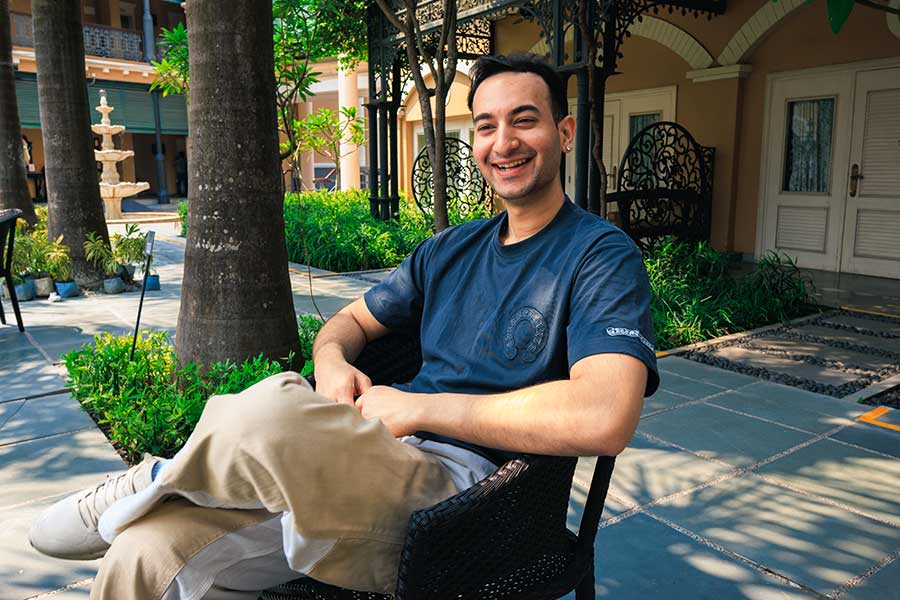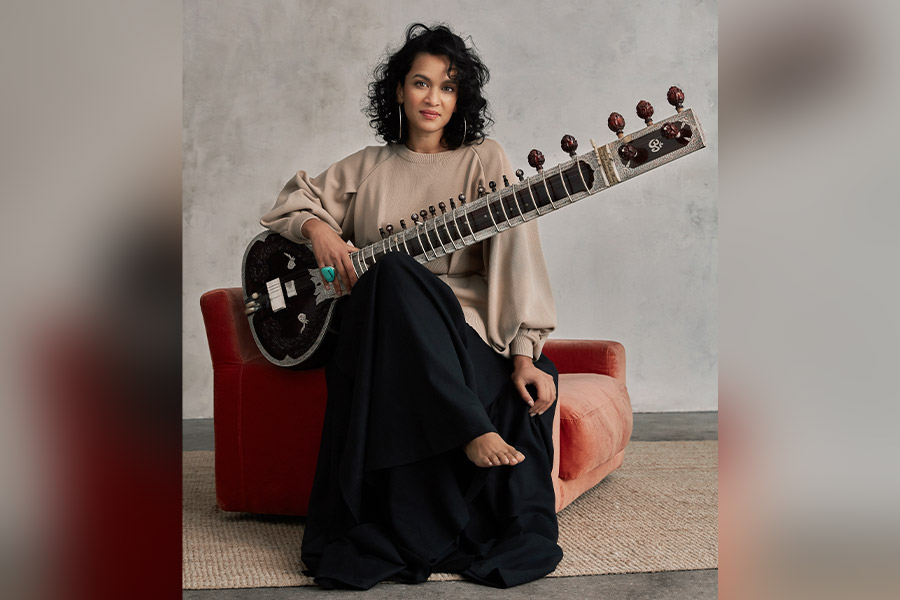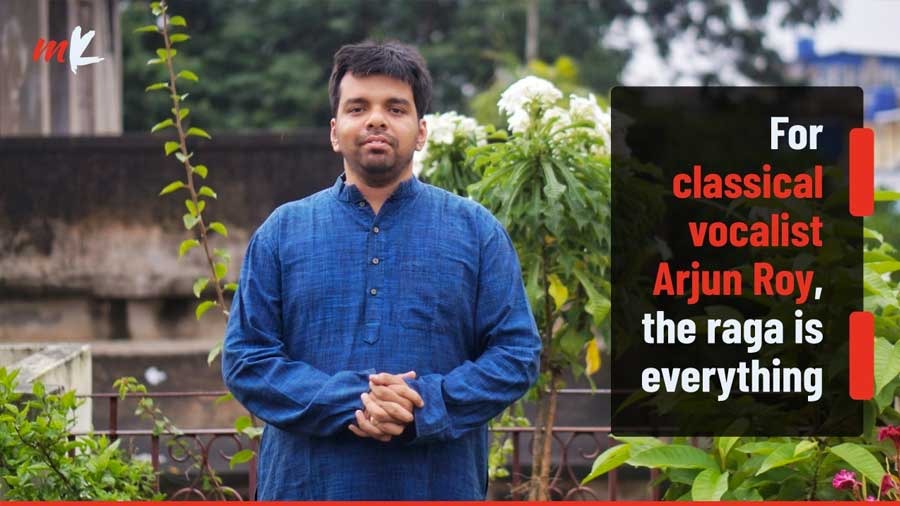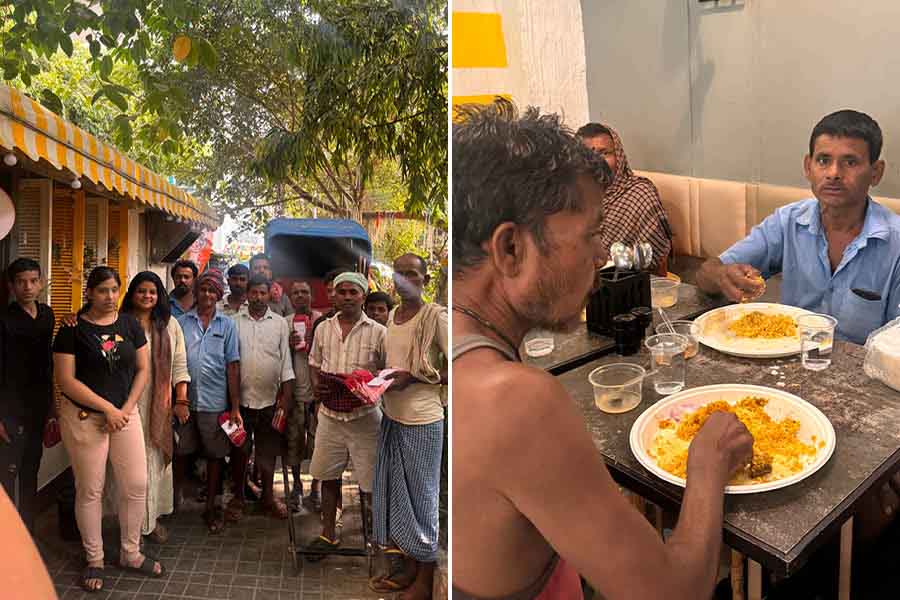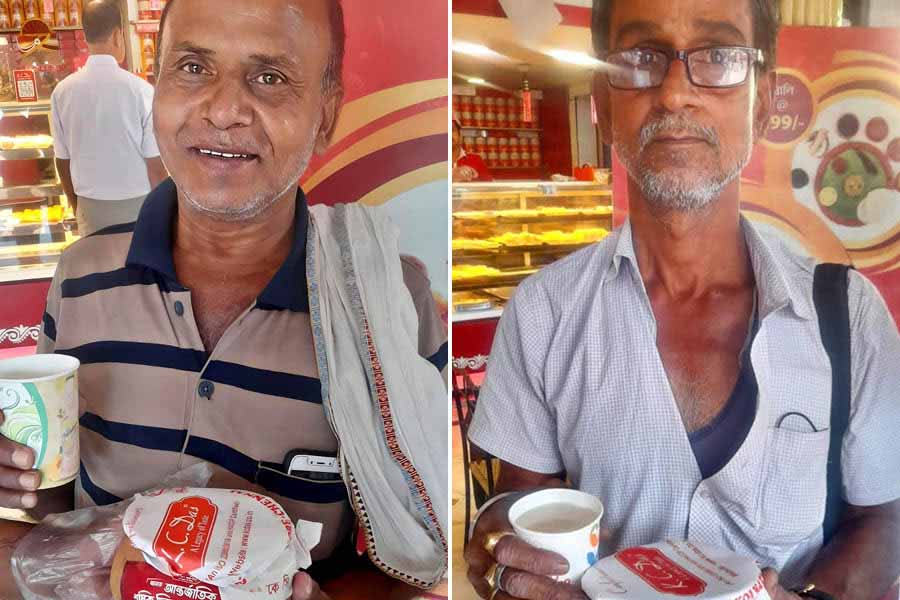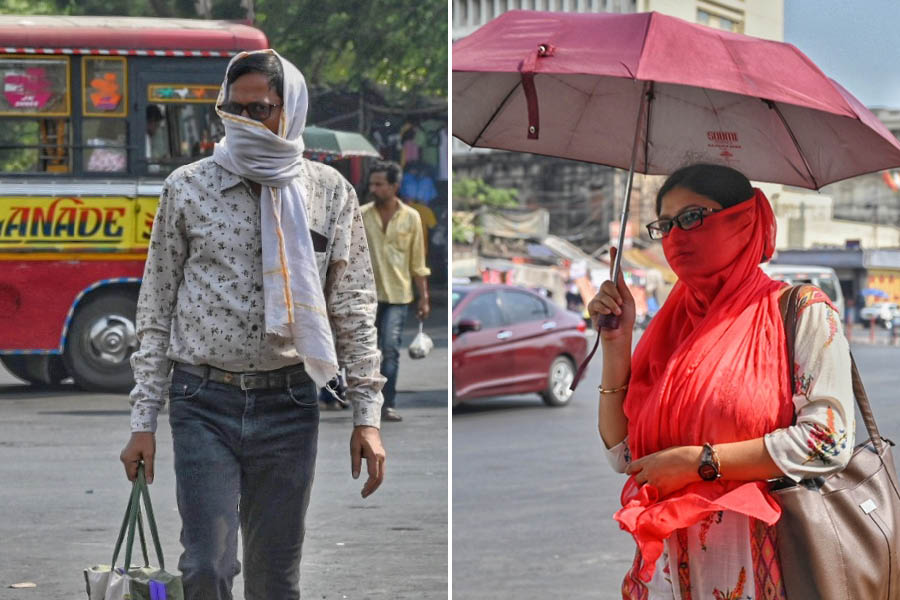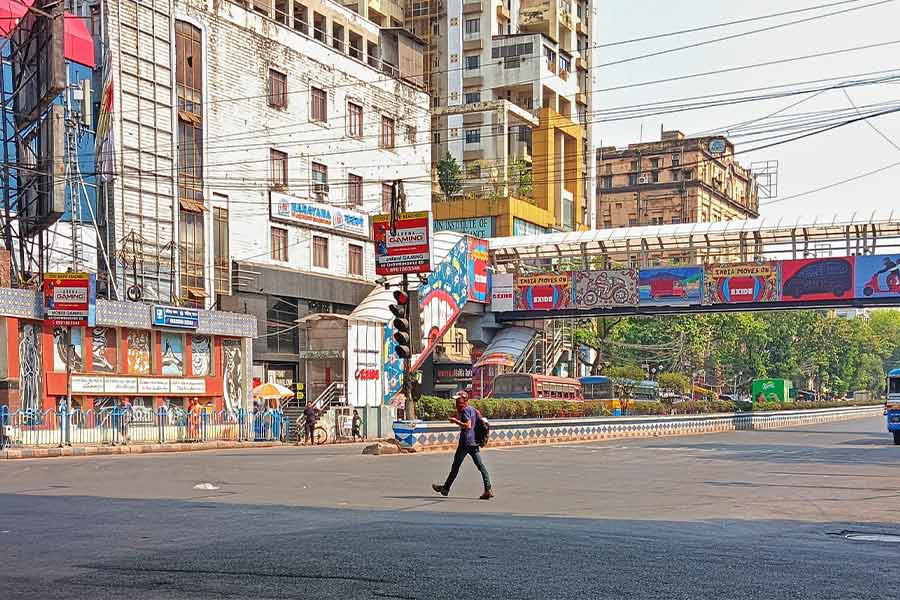A natural-born musician, who grew up in a family of musical instrument makers, 25-year-old Rishab Rikhiram Sharma is a sitar player and music composer, and someone whose sitar videos you are sure to have come across on your Instagram feed. Born into the Rikhi Ram family of luthiers, Rishab’s childhood was a musical one. The Rikhi Ram Musical Co is a legacy shop, founded by the late Rikhi Ram Sharma in Delhi, which has enjoyed the patronage of musical greats in India and abroad.
Introduced to the sitar at the age of 10 by his father, Sanjay Rikhiram Sharma, Rishab swiftly immersed himself in music. In 2011, the teenage Rishab’s stage debut in Delhi’s India Islamic Cultural Centre drew the attention of sitar maestro Ravi Shankar, who became his mentor through the years that followed.
Distinguishing himself globally, Rishab, who is also an active mental health advocate, became the first sitarist invited to perform solo at the White House for Diwali event in 2022, hosted by President Joe Biden, First Lady Jill Biden, and VP Kamala Harris.
Rishab’s own project, Sitar for Mental Health, founded in 2020, underscores the therapeutic potential of music. As part of his tours for the initiative, spanning India, the US, Canada, and South America, his performances have captivated 60,000+ live spectators at the NRG Stadium in Houston and reached over 500 million viewers worldwide. His weekly live sessions on Instagram and Clubhouse engage millions, while his Woodstock 50 Reunion tribute honoured Ravi Shankar’s legacy.
Growing from the social media app Clubhouse, Rishab’s music has earned him many fans on social media and off it. Beyond accolades, Rishab is vocal about mental health, openly sharing his battles with anxiety and depression. Through Sitar for Mental Health, he offers free music therapy online and collaborates with experts to nurture holistic mental wellness.
The musician from Delhi was in Kolkata on March 21 to perform at the GD Birla Sabhagar as part of his India tour, when My Kolkata met him for a chat.
Edited excerpts from the candid chat follow…
My Kolkata: How was it performing in Kolkata for Sitar For Mental Health?
Rishab Rikhiram Sharma: It was amazing! The energy in that auditorium was palpable. There’s a temple upstairs and the auditorium is downstairs and I loved that concept. It reminded me of the Hanuman Temple in New York, which has the temple on the first level and then the basement for events. The audience really paid attention and were vibing with the music. They were so supportive after every song, which is encouraging for artistes.
Was there anything special you performed for the Kolkata audience?
I performed Aha Ki Ananda (from Hirak Rajar Deshe), and when the audience heard the first three notes, they went “Woooo!” I also performed the Piku theme, along with some originals — released and unreleased.
It was not only a concert, but an experience…
We begin with an introduction. My dad flew in from New York and my mom came from Delhi for the show. My dad set up a pop-up outside so we could inform people about the sitar, and they could touch and feel the sitar and get acquainted with it or even take photos. Then, before the show, he gave a little speech about Sitar For Mental Health and the POV of a father whose child was going through depression or anxiety.
What is the story behind that speech?
Earlier, my parents did not really understand it [mental health and the struggles]. With our parents’ generation, and how they were brought up, it took a lot of awkward conversations. I told them how I was feeling, and that I was going through therapy and counselling, and working on myself. After many conversations, it became normalised for them. It was really heartwarming when my dad shared how he didn’t know about mental health issues and what it entails, but through his child, he now knows.
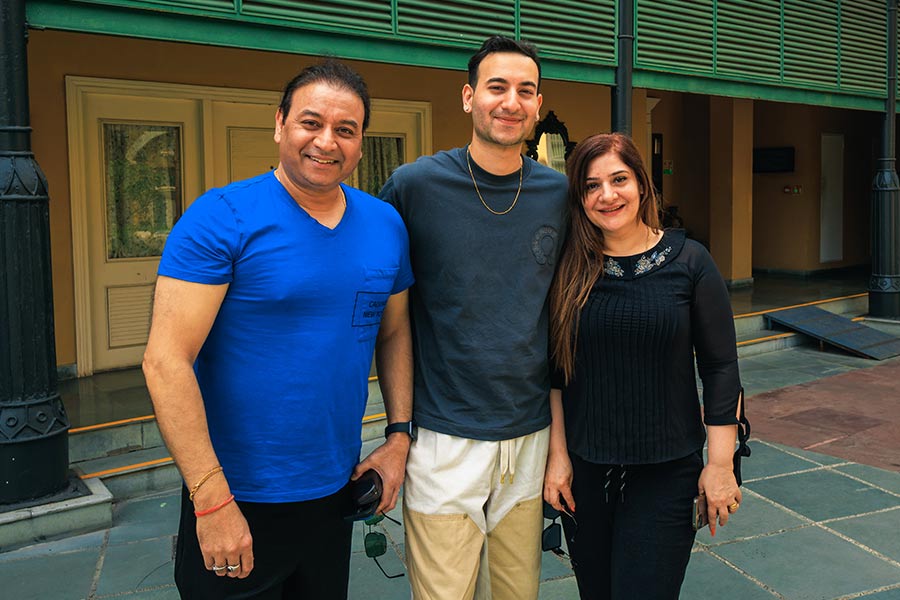
Rishab with his parents Sanjay Rikhiram Sharma and Manjul Sharma
Krishnungshu GangopadhyayTell us about how the show progressed.
I like to calm people down before I start the show, so we began with a breathing exercise for about five to 10 minutes. I lead the meditation on the sitar, playing something similar to a slow alap rooted in Dhrupad tradition, followed by jor, which is an alap set to a rhythmic frame. I had two tabla artistes from Kolkata join me — Karthik and Debdeep — who have trained under the same guru. There is an intermission after, where we have an audience activity and I ask strangers to interact in little groups or by talking to the person next to you. The idea is to acquaint yourself with them, asking three questions — What do you regret? What are you grateful for? What do you look forward to?
Why such an activity?
When I was on Clubhouse, I liked to interact with people and have conversations about mental health. It was a very dark time [during the pandemic], everyone was losing someone. I would just grieve and found it easier to open up to strangers than friends. I want people to experience a similar thing. After this interaction, the energy just changes because everyone is one community — we are together. Then I play more contemporary music like [his original compositions] Chanakya, Raanjhana, and Roslyn, which is a favourite. For this show, I did a couple of Bengali songs as well.
Did you get time to explore Kolkata before or after the show?
Not this time. But last time, we went to Victoria Memorial and did a quick round of the city since we had more time. This time around, I was mostly in my hotel room chilling, practising and rehearsing.
Let’s go back and start where it all began for you. You started learning under the guidance of your father, but he wouldn’t let you touch a sitar…
I come from a family of musical instrument makers, and they are very respectful towards instruments. The reason my dad didn’t let me touch the sitar was because he saw how I treated the guitar — I would keep it on my bed or on the floor. We’ve also seen people break guitars, so my dad wanted me to respect it. Saraswati Mata has a veena in her hand, and it is associated with god, and so should other instruments be. I immediately corrected myself. I was more respectful with the guitar and told him I’d do the same with the sitar.
You then trained under Ravi Shankar…
Guruji accepted me as his disciple after watching a performance of mine on YouTube, and then things became serious. Guruji was such a nice human being — so thoughtful and funny. I think I’ve picked up his wordplay from how we would joke around. But when he would teach me, it was very serious. He was the sweetest person, but when he picked up the sitar, he was very strict. He would often say, “I’m not going to live much longer. I’m 90 years old already. So, pick up what you can from me.” And I was trying my best to grasp everything. I wish I could have learned more. Even at the dinner table, he would teach me.
Tell us about moving to New York in 2015 and the musical journey there…
I was studying production [Music Production and Economics at City University New York, Queens College Campus] when I picked up the sitar. I used to listen to a lot of EDM, like Hardwell, and always wondered how they made these songs. A friend of mine installed FL Studio (the digital audio workstation) and we cracked it on my laptop (laughs) and that’s how I started making my beats. I wasn’t mixing them — sitar and electronic production — but when I went to college, I collaborated with different hip-hop artistes and rappers, and they really liked Indian music.
So, I thought, why not merge them? I had to find a good midway. If you listen to some of my music, it’s very traditional and some are in Darbari (Kannada). The beat is very modern with drums and the 808s. So, when I made that sound, I found myself in this space of tradition meets modernity. But I didn’t release anything until 2021.
During the pandemic, you said things got dark for you, but you also sought help. Would you like to speak about that?
I feel like when it comes to receiving help to take care of your mental health, there’s a traditional approach — where you’re going for psychotherapy and counselling. Then there’s a more holistic approach. I merged both of them to cope with my Nanaji’s death. During that time, I put my sitar down and was not practising, which was a huge void because music has always played a very big role in my life. I have always been around music. As a kid, I would go to the factory where instruments were made and many big names would visit, so we were always around the culture and then I stopped playing because I didn’t feel like doing anything. I wouldn’t come out of my room, and would wake up with my heart beating out of my chest — restless, sleepless, watching Netflix in bed all day. I would sometimes open Clubhouse and my online friends became a support system.
And then you went for counselling as well…
That was a big game changer for me. I really had to search because I wasn’t getting any appointments with therapists as everyone was in desperate need of therapy. So, knowing nothing about psychotherapy, I booked an appointment with a psychiatrist, and that’s when I came to know that a psychiatrist prescribes medication and doesn’t do therapy. He said I didn’t need medication, but should see a therapist, but was also nice enough to have a couple of sessions with me, after which I felt better and wanted to do music again. When I picked up the sitar again, after five or six months, it just felt like a familiar surprise.
If I had any bad days at school, I would just come home and practise it — that was my way of dealing with things. Sitar has always been a vital part of my life. Then I started having an outlet on Clubhouse and I would go online and just share my music, play my heart out. There wasn’t any structure or form. It was just like a lab door, but it built a community. I would do this every day, until the three or four people turned into 4,500 people. When I saw that there was potential to expand the community, I turned to the other option — Instagram. We started doing live videos, and live sessions and then the community just exploded. I wouldn’t just play, I would talk about mental health and open up the stage for people to share their mental health stories. That’s what I try to recreate at my shows as well.
Your talent took you to play at the White House’s Diwali party in 2022. How was that experience?
You would be surprised that I initially refused. It wasn’t their fault, but they didn’t know how to present Indian classical events because it was never done before. They asked me if I could play standing up, and then they asked if I’d play a welcome song when the guests arrived. I said no because that’s not how it happens. Being an ambassador for Indian music, I often ask, ‘what would Guruji do?’
What would he do?
Guruji would say there should be a raised platform with a clean white chaddar. I tried to convince them for a riser but we settled on a bench since the riser would be difficult as the president was speaking right after. I’m glad I did that because if I had stood there and put up a mediocre performance, the perception of the sitar would be the same. There was a lot of back and forth but I’m glad it happened because they also educated themselves about things. We also had a meet-and-greet with the president where we clicked a photo with him… which no one else got!
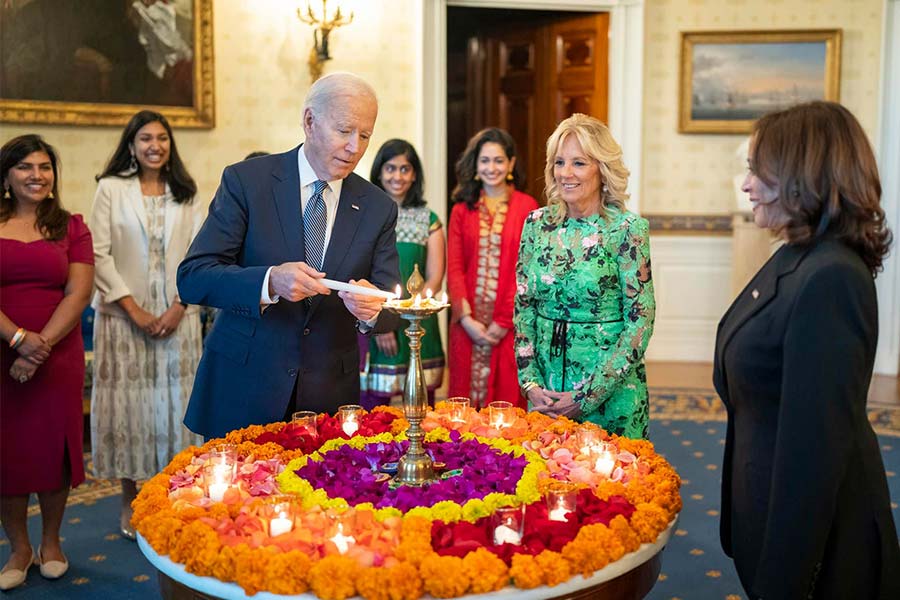
Rishab performed at the White House for Diwali celebrations in 2022 with President Joe Biden, First Lady Jill Biden, and Vice President Kamala Harris in attendance
US Embassy India/ FacebookDid you get to see much of the White House?
My green room was the China Room, where all the cutlery of every president, right from the first president, is showcased on the shelves all around. I was looking at [Abraham] Lincoln’s cutlery on one side and[Donald] Trump’s on the other side. Such a historic room, and that was my green room!
What have you planned for the future?
I plan to take Sitar For Mental Health worldwide — starting with the US, UK and Paris. I am also working on a Sitar For Metal Health tape that will have numerous ragas, and an album that will come out later this year.


